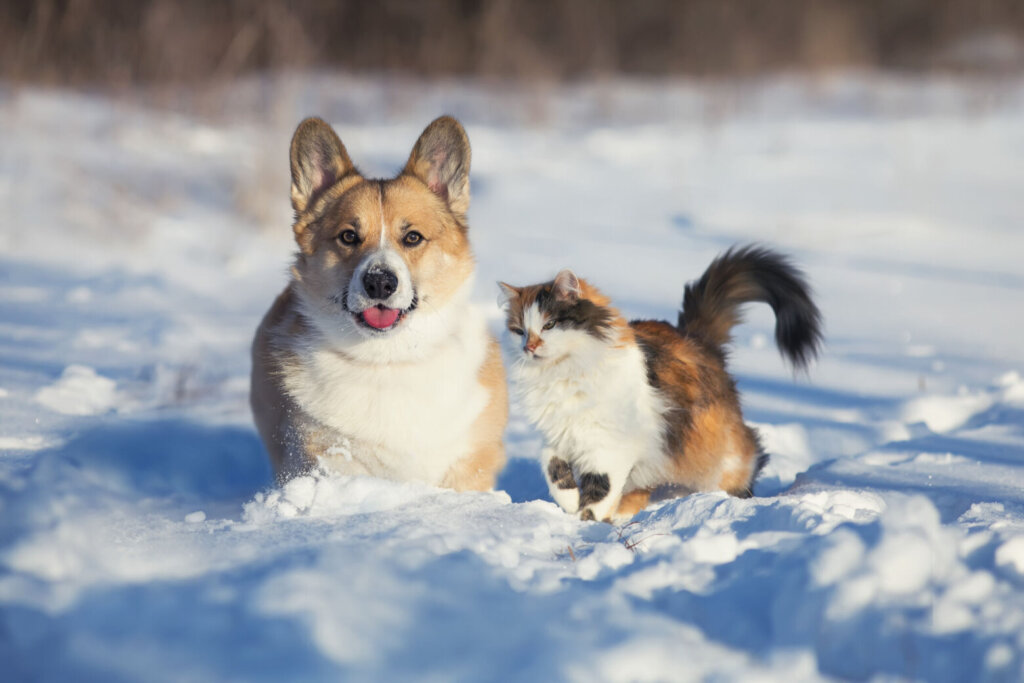
The extreme cold weather the D.C. area is currently experiencing is not just dangerous to people – it can pose a real threat to our furry, four-legged friends.
The extreme cold weather the D.C. area is currently experiencing is not just dangerous to people – it can pose a real threat to our furry, four-legged friends.
The American Veterinary Medical Association, the Humane Society of the United States and the Prince George’s County Animal Services Facility and Adoption Center are giving pet owners some tips to keep their beloved animals safe during the cold snap.
The easiest way to keep pets safe is to shorten your dog’s walks in very cold weather.
Once you’re back inside, wipe down your pet’s paws, legs and belly with a wet towel to remove any ice, salt and antifreeze, which can be deadly to them. Salt can irritate or burn your pet and possibly cause vomiting or seizures.
Consider getting a coat or sweater for your dog, especially those with short hair. Exposed skin on noses, ears and paw pads are at risk for frostbite and hypothermia. Make sure you can use a dry sweater or coat each time your dog goes outside, since wet sweaters or coats can make a dog colder.
Dogs and cats are susceptible to frostbite and hypothermia, and should be kept inside during cold weather. Long-haired and thick-coated dog breeds, like huskies, are more tolerant of cold weather than some other dogs, but no pet should be left outside for long periods of time in below-freezing weather.
Keep kittens, puppies under six months, and small or short-haired dogs inside.
Do not leave your pet in a closed car in the winter – it can be just as deadly as the summer heat.
A pet’s cold tolerance can vary based on their coat, body fat stores, activity level, and health. Be aware of your individual pet’s tolerance for cold weather, and adjust accordingly.
Be sure to bang loudly on your car hood before starting the engine to give cats that might be hiding in them a chance to escape. Cats like to seek shelter from the cold and can be under the hood of your car.
Keep dogs away from frozen ponds, lakes and other water.
Pets become lost in colder weather because snow and ice can hide recognizable scents that might normally help them find their way back home. Make sure your pets have a well-fitting collar with contact information on it. Microchipping can also help identify them when they’re lost.
Stay connected with us on social media platform for instant update click here to join our Twitter, & Facebook
We are now on Telegram. Click here to join our channel (@TechiUpdate) and stay updated with the latest Technology headlines.
For all the latest Lifestyle News Click Here
